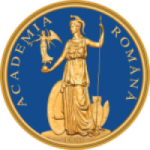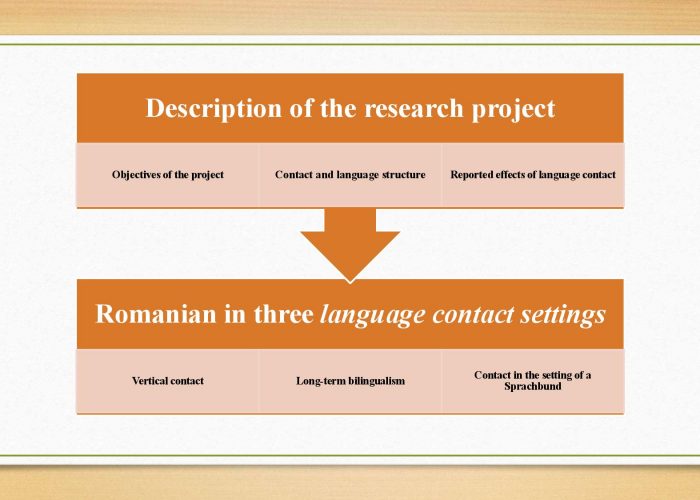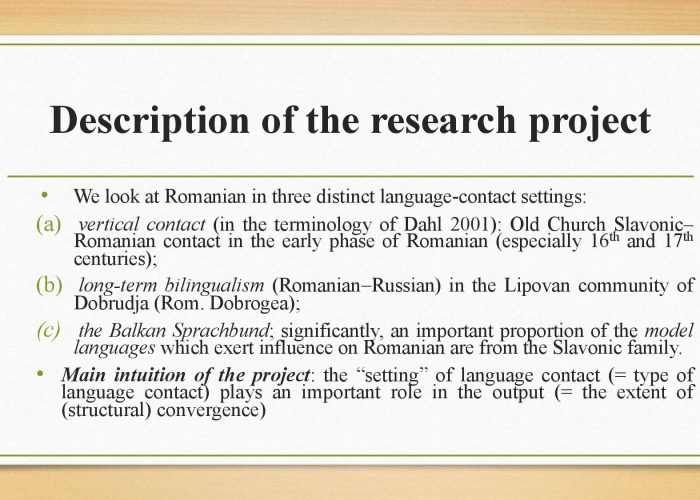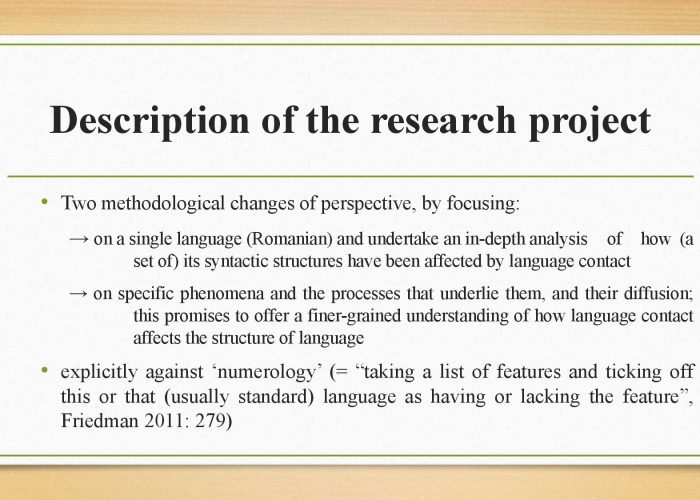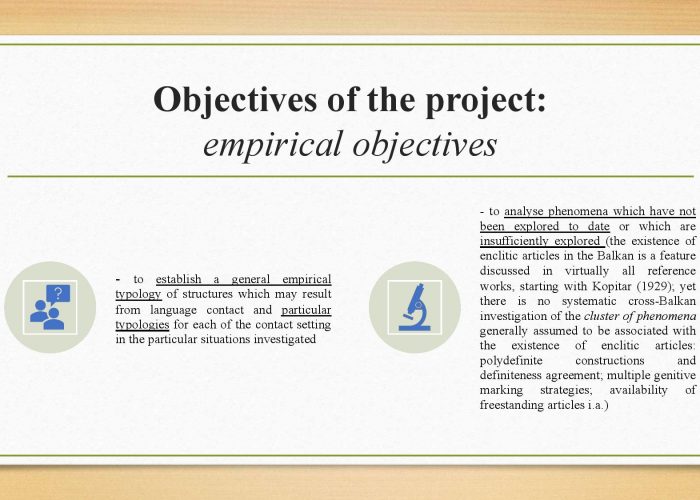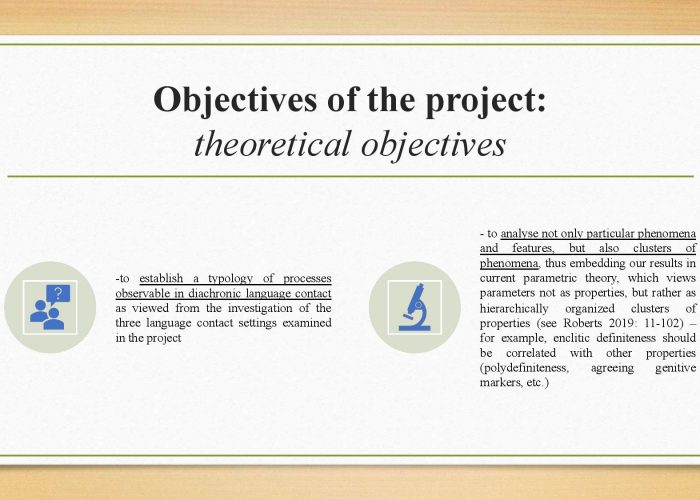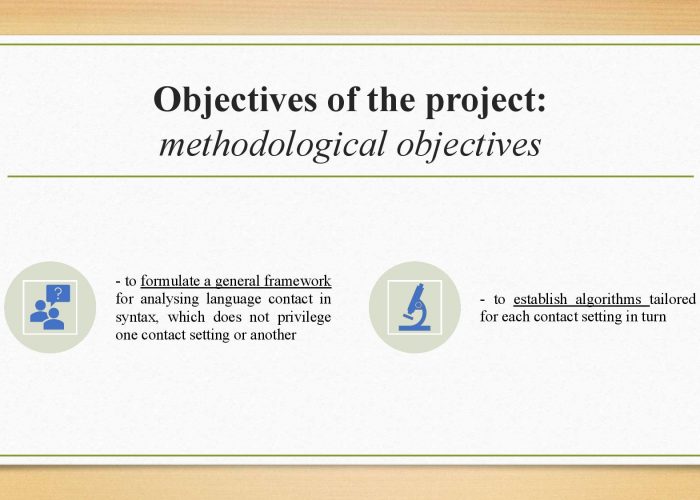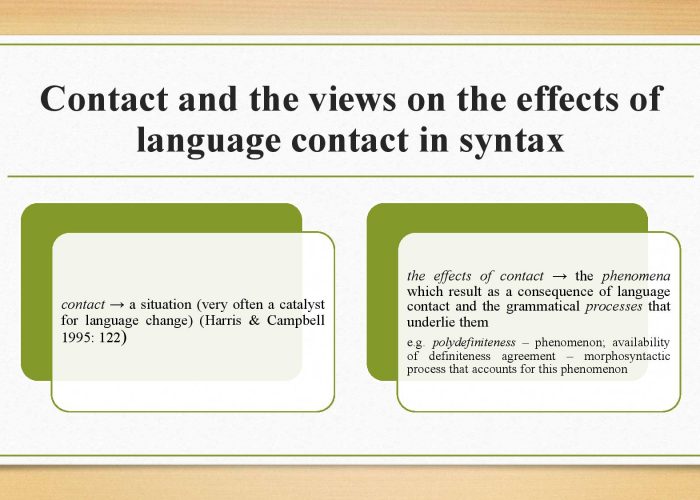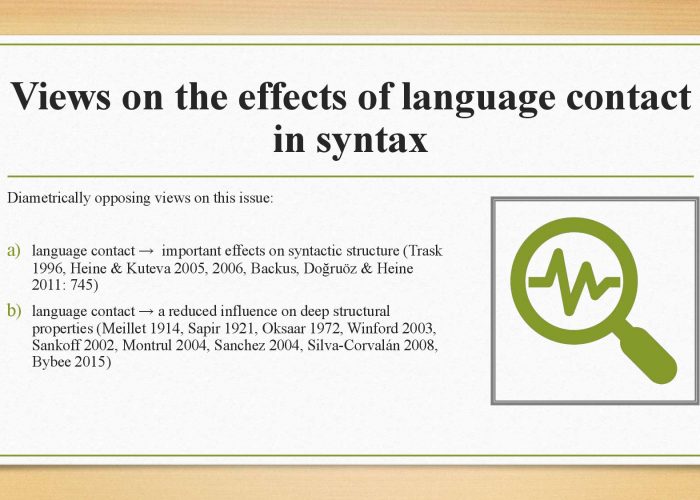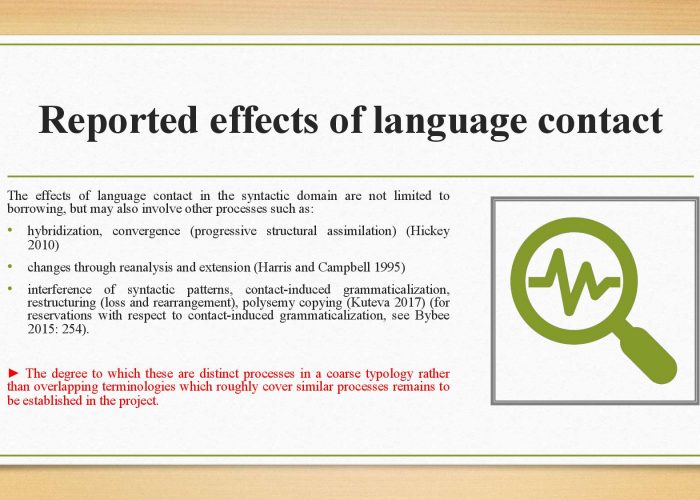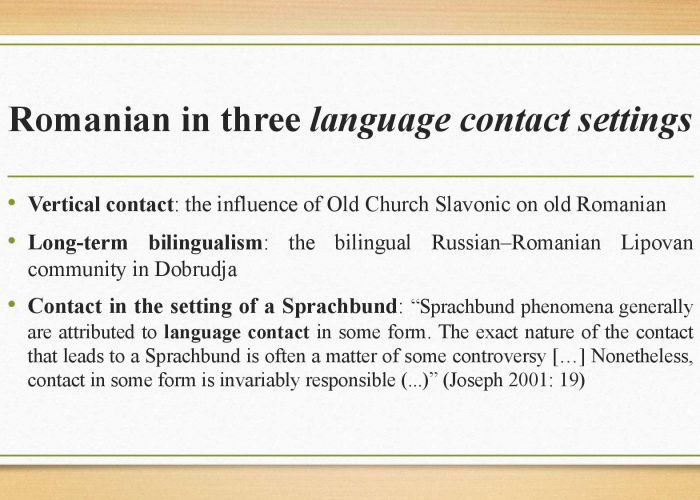Contrasting contexts of language contact in synchrony and diachrony
Ipostaze ale contactului lingvistic sincronic și diacronic în sintaxa limbii române
Principal investigator: Dr. Alexandru NICOLAE
Summary / Rezumat
Description of the research project (short)
Description of the research project (long description project)
Project team
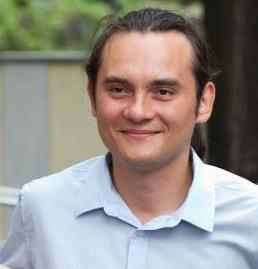
Dr. Alexandru Nicolae (Principal investigator)
Dr. Alexandru Nicolae ( alexandru.nicolae@unibuc.ro) holds an MA degree (2010) in theoretical linguistics from the University of Bucharest, a PhD degree (2013) in theoretical comparative linguistics jointly awarded by the University of Bucharest and the University of Cambridge (co-tutelle), and a Habilitation in comparative grammar defended at the University of Bucharest (2021). He is currently a Researcher in the “Iorgu Iordan – Al. Rosetti” Institute of Linguistics at the Romanian Academy and an Assistant Professor in the Department of Linguistics at the University of Bucharest. Postdoctoral fellowships: A comparative and typological perspective on the syntax of Old Romanian: configurationality (POSDRU/159/1.5/S/136077; 2014-2015); Discontinuous Structures in the Diachronic Syntax of Romanian: Some Unfinished Business (PN-III-P1-1.1-PD-2016-087; 2018-2020). In 2016, he spent 6 months in MIT’s Department of Linguistics and Philosophy as a Fulbright Senior Scholar. He also frequently spends research stages at the University of Cambridge, in various capacities: Visiting PhD student (2013), Visiting Scholar (2015, 2020), Erasmus mobility (2014, 2017). Alexandru Nicolae is interested in the morphosyntactic structure and development of Romanian from a comparative and diachronic Romance perspective. He published two single-author monographs on word order and parameter change in Romanian (Ordinea constituenților în limba română, Bucharest University Press, 2015; Word Order and Parameter Change in Romanian: A Comparative Romance Perspective, Oxford University Press, 2019) and a single-author monograph on ellipsis (The Licensing of Nominal and Verbal Ellipsis in Romanian, Bucharest University Press, 2019), co-authored a book on semantic variation and change (101 greșeli de lexic și de semantică. Cuvinte și sensuri în mișcare, Humanitas 2011), contributed as a co-author to major reference works such as The Oxford Guide to the Romance Languages (OUP, 2016), The Syntax of Old Romanian (OUP, 2016), The Grammar of Romanian (OUP, 2013), and Gramatica de bază a limbii române (Univers Enciclopedic Gold, 2010, 2016) and co-edited several collective volumes with Romanian and international publishers (Romance Languages and Linguistic Theory 2017: Selected papers from Going Romance 31, Bucharest, in press with John Benjamins; Comparative and Diachronic Perspectives on Romance Syntax, 2017; Sintaxa ca mod de a fi. Omagiu Gabrielei Pană Dindelegan, la aniversare, 2016; Perspective diacronice și comparative asupra limbii române, 2016; Diachronic Variation in Romanian, 2015, etc.). In 2012 Alexandru Nicolae was awarded the “Bogdan Petriceicu Hasdeu” Prize of the Romanian Academy for his contribution to Gramatica de bază a limbii române.
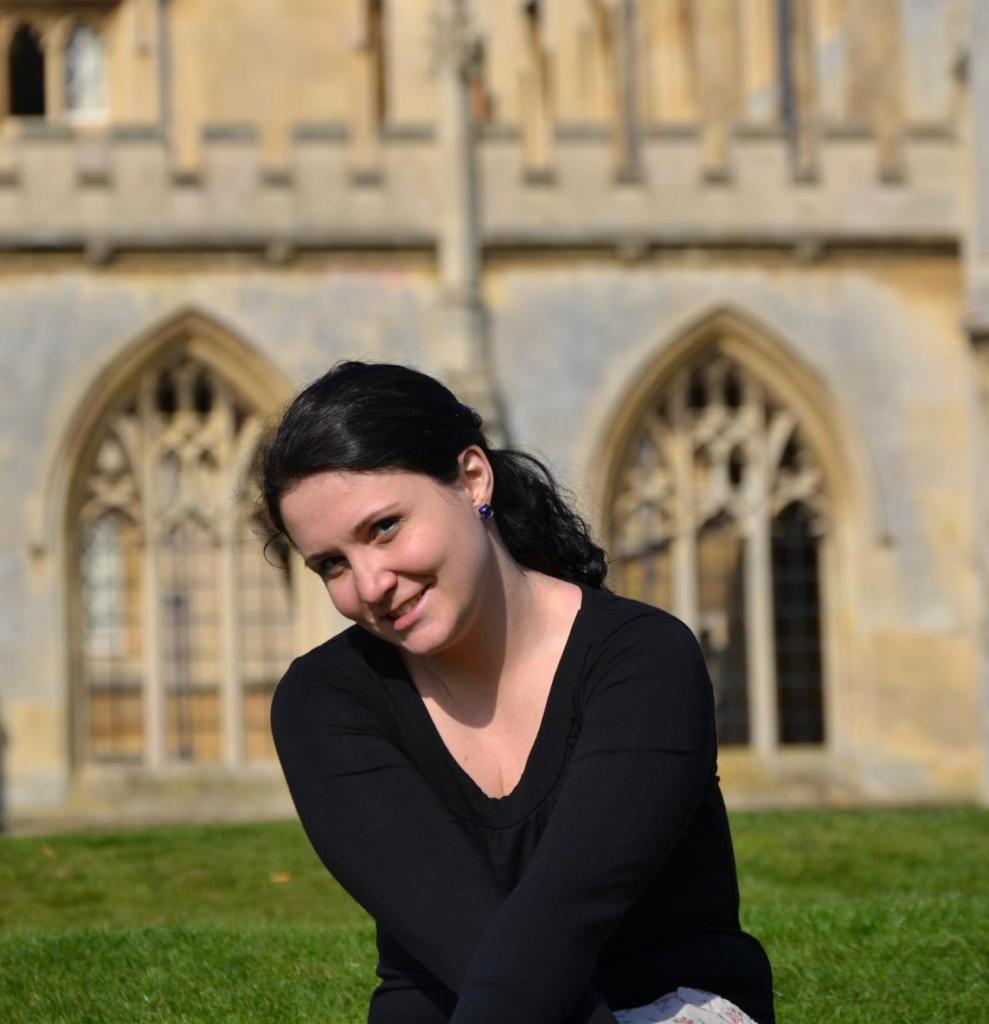
Dr. Adina Dragomirescu
Dr. Adina Dragomirescu is a Researcher at the “Iorgu Iordan – Alexandru Rosetti” Institute of Linguistics (and currently the director of this Institute) and an Associate Professor in the Department of Linguistics at the Faculty of Letters, University of Bucharest. She is a specialist in the syntax of Romanian and Romance, as shown by her work as a co-author of: Gramatica de bază a limbii române [The essential grammar of Romanian], Bucureşti, Editura Univers Enciclopedic Gold, 2010 [second edn, 2016]; The Grammar of Romanian, ed. by G. Pană Dindelegan, Oxford University Press, 2013; The Syntax of old Romanian, ed. by Gabriela Pană Dindelegan, Oxford University Press, 2016; The Oxford Guide to the Romance Languages, ed. by Adam Ledgeway and Martin Maiden, Oxford University Press, 2016, The Oxford History of Romanian Morphology, ed. by Martin Maiden, Oxford University Press, 2021, etc. She is also the author of two monographs: Ergativitatea. Tipologie, sintaxă, semantică [Ergativity. Typology, syntax, semantics], Editura Universității din București, 2010 and Particularități sintactice ale limbii române în context romanic. Supinul [Specific syntactic features of Romanian within Romance. The supine], Editura Muzeului Național al Literaturii Române, 2013. Her current main research interests are: language contact in syntax (the Slavic influence on the syntax of old Romanian), the syntax of Istro-Romanian, and the grammaticalization of motion verbs.

Adnana Boioc Apintei (PhD student)
Adnana Boioc Apintei is a PhD student in linguistics at the University of Bucharest and a Junior Researcher at the “Iorgu Iordan – Al. Rosetti” Institute of Linguistics. Her research concentrates on the most visible effects of the influence of Lipovan Russian (the mother tongue of the inhabitants known as the Lipovans) on Romanian, and focuses mainly on the morphological and syntactic consequences of language contact (between Romanian and Russian), a topic worthy of attention because the Romanian variety spoken there has long been under intense linguistic contact with Russian. She has worked on topics centered around the language spoken by Lipovans, and presented her research at several national and international conferences (see, for example, the following papers: “Linguistic interference in a Romanian-Russian bilingual context. Issues in the grammar of relative clauses” at 15th Workshop on Syntax, Semantics and Phonology (Barcelona, 2018), “The Slavic–Balkan Contact: The case of Lipovan Romanian”, at 12th Congress of South-East European Studies (Bucharest, 2019), or “Is the placement of subjects to be changed through contact? The view from Lipovan Romanian and Moldovan Romanian” (with Ș. Costea), at Societas Linguistica Europaea (2020). Her research is based on empirical data collected from the Lipovans’ community from Dobruja. She established contacts with linguistic informants from Dobruja area, conducting fieldwork sessions to analyze the linguistic behaviour of bilingual speakers, and record an oral corpus.
